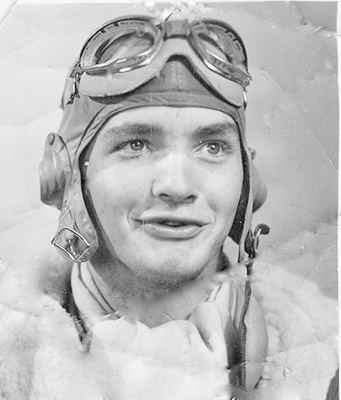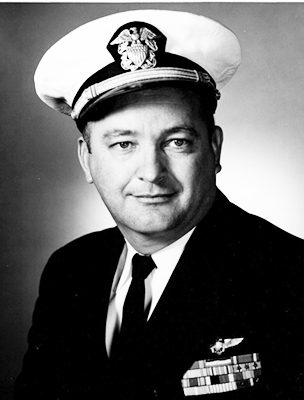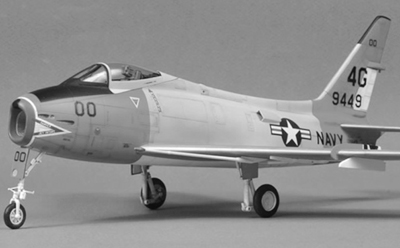 The belief that “God is on our side” can be deadly.
The belief that “God is on our side” can be deadly.
In June 1944, I arrived at Eniwetok, a small coral atoll in the western Pacific. I had finished the Navy’s aircraft carrier-based fighter pilot training and had orders as a
replacement pilot to join Fighting Squadron One aboard the USS Yorktown. The other pilot assigned to Fighting One was Leon L. Cyphers, whom I shared a tent with while we waited for our ship to arrive.
When we arrived, base operations was soliciting volunteers to help ferry new aircraft from Majuro Atoll, a replenishment base about 1,000 miles East. I readily volunteered, but Leon declined. Friendships came quickly and easily at that time. Generally, when two fighter pilots got together, the talk turned to flying, gunnery ballistics or women, but Leon talked about his family. He was married and had two children, one a newborn. He dwelled for five minutes on his baby daughter’s fingernails.
After a few days, Leon decided to join the ferry group. I briefed him on procedures on the way over. Everything went smoothly and he taxied out, two planes ahead of me. Because the taxiways were crushed coral, loose coral was everywhere, and our full-power engine checks were restricted to the starting takeoff point on the runway. Our instructions were, when cleared for takeoff, to position on the runway, perform a magneto check, then go to full throttle. Then, if the engine was running normally, to release the brakes and commence the takeoff.
When Leon was doing his engine check, he let one wheel roll slightly. When he released the brakes, he was headed off the side of the runway. He next did a series of corrections, but each time he let the nose swing by the runway heading. Still accelerating at full power, he crashed into parked aircraft along the runway but was unhurt. Leon was deeply troubled by the crash and declined to go on another ferry flight.
In about two days the fleet arrived. What had been an empty lagoon was filled with three carriers, four cruisers, two battleships, about 20 destroyers and 30 service ships along with ammo, fleet oilers, refrigerated, etc. — a complete supermarket for the fleet.
Leon and I packed our belongings and reported aboard to our units. Our briefings were intense. Our flight discipline was worrisome for Leon. This meant when taking a wave-off from the LSO (landing signal officer), we were to turn right or left and fly away from the ship a few hundred feet so as not to worry the bridge that you might crash into it. We were told we would get two refresher flights. The third flight would be in the combat zone. We were cautioned that a combat-ready fighter with drop-fuel tank and full ammo required a higher landing approach speed and that overall performance was sluggish.
I finished my first flight and I went below to our ready room. The duty officer announced that one pilot was having trouble getting aboard. I suspected it was Leon. He finally came in but crashed into the barrier. In two flight attempts, his damaged aircraft count was eight.

Leon asked after dinner if we could talk in private. He started unloading all his fears and was crying. He told me what happened on the takeoff crash. He was reverting back to his initial flight training. He was told if the nose is right, apply opposite rudder and the same thing if the nose was left. This is true, but he never figured out that when the nose was coming close to straight ahead, opposite rudder must be used to stop the swing.
It quickly came to me that Leon had not really learned to fly. He asked to hold hands while he prayed. He asked God to guide his limbs so he could safely complete the required maneuvers. His prayer shocked me. I had elementary training in prayers, but Leon had a master’s degree. He asked God for guidance on aircraft control that he should have already mastered hours ago, It was obvious he was a danger to himself and everyone in his path.
I saw him the next morning at breakfast. He was in good spirits and thanked me for my support. I was not convinced that the prayer had the effect he felt, so I went to our commanding officer to tell him of my fears. I was promptly dismissed with a warning on procedural steps to take in the future: first go to the division officer, the squadron safety officer, etc. I never saw my friend again. On July 11, he got slow in his landing approach, applied power to wave-off, went into a torque roll, hit the water and cartwheeled until the plane sank.
Leon died because he believed his prayers were going to be answered. There is no doubt in my mind that the main cause of the accident was the substitution of faith for proficiency.
During the Korean War, I was assigned to a six-pilot team. One member was an outstanding athlete. He also had an “attitude” and would not conform. He rejected all criticism with either denial or by saying, “I have God in my cockpit.” I appealed to the commanding Officer to have him removed from the team. My request was rejected with a review of my record and a mandate to “train him.”
One night off the Korean coast on a four-plane mission in snow showers, we were on our descent. The problem pilot radioed for me to turn my lights on bright as he had lost sight of me. I immediately ordered him to climb, but he repeated his request. I again ordered him to climb.
There were no more radio transmissions. no debris found the next day. I feel he flew into the water looking for the lights of our formation in defiance of my order to climb.
His faith failed to save him.
Melvin Brantley was born in 1921 in Colorado, where his father was a chicken and egg wholesaler. After moving to Oregon, Melvin grew up in the trucking business. He enlisted in the Navy during World War II and earned the Distinguished Flying Cross, five Air Medals, racked up 7,500 hours of pilot time and completed 525 carrier landings (190 at night), all accident-free.
Gout forced his military retirement in 1964. He then worked in various management positions and real estate sales. After his two daughters and son finished college, Melvin retired to a roving motor home. He has 11 grandchildren and four great-grandchildren.

